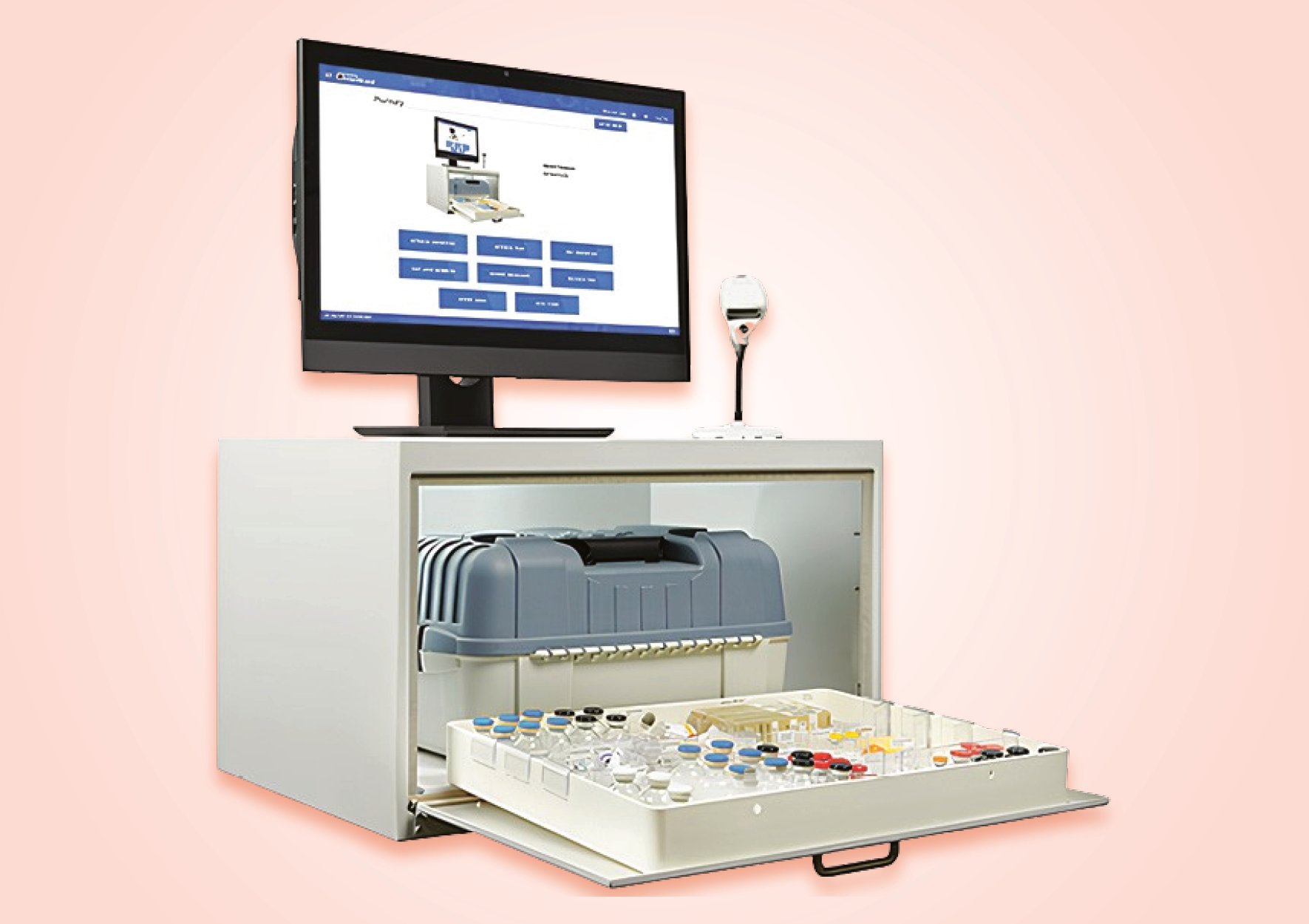- Show Menu
- Contact Us
- FAQs
- Reader Service
- Survey Data
- Survey Winners
- Testimonials
- Upcoming Events
- Webinars
- White Papers
Product Spotlight: SmartPak
By Alfred A. Feroli, MS, RPh
LOCATED IN LANCASTER, PENNSYLVANIA, LANCASTER GENERAL HOSPITAL, a 563-bed, not-for-profit, acute-care hospital, has achieved Magnet Hospital designation, received a 2005 HealthGrades Distinguished Hospital Award for Patient Safety, was named one of “America’s Best 50 Hospitals” for five service lines by U.S. News & World Reports, and has been awarded a 2005 ASHP Best Practices Award. Our inpatient pharmacy department operates a 24-hour inpatient pharmacy, seven days a week, offering both centralized and decentralized pharmacy services. Our intravenous admixture service (IVAS) is centralized in our main dispensing pharmacy, and according to USP Chapter <797> criteria, we are a highrisk compounding facility. As such, product safety is our primary goal. We are also a high-volume compounding facility, with over 300,000 intravenous doses prepared annually. So cost control and process efficiency are also important considerations for us.
Previously, we had elected to utilize syringe pumps as our primary delivery system for IV antibiotics, because we found this to be a more costeffective method for the preparation and administration of IV antibiotics when compared to mini-bag preparations. While cost effective, batch syringe preparations did present us with some challenges, most notably the time needed to reconstitute multiple pharmacy bulk bottles of products such as cefazolin, nafcillin, and cefoxitin. In addition, the manipulations of the reconstituted products were also time consuming. Depending on the product, we would use one of two processes, either:
- reconstitute and transfer multiple bottles into an empty sterile IV bag (a process also known as pooling) for withdrawal into syringes, or
- reconstitute and withdraw the appropriate amount of reconstituted drug directly from an individual bottle into syringes.
While all of the products are prepared in an ISO Class 5 environment, the risk of contamination or breach of protocol is always present, particularly when multiple manipulations are involved in the preparation of a final product.
Samson Medical Technologies has introduced a line of antibiotics specifically for institutions and compounding pharmacies that have a need for larger quantities of bulk drugs than are currently available. Samson’s SmartPaks are bulk quantities (75 g to 300 g) of sterile antibiotic powder contained in two empty, sterile bags capable of holding the total reconstituted volume (up to 3,000 mL, depending upon the product). The inner bag is in direct contact with the drug product, and the outer bag protects the inner bag from light, moisture, and oxidation.
We decided to introduce the cefazolin 100 g SmartPak in our IVAS. Using Samson’s SmartPak instead of 10-g bottles, our goals were to save staff time and reduce our number of manual manipulations. Additionally, because the Samson SmartPak is a closed system, we believed we could reduce our contamination risk. In addition to these advantages, we also considered the reputation of Samson Medical Technologies as part of our decision-making process. The company’s founder, Marvin Samson, was also founder of Elkins-Sinn, Inc. and Marsam Pharmaceuticals, and has long been an innovator in the pharmaceutical industry.
Our new process is now much simpler. Working in an ISO Class 5 environment to fill our syringes, we remove the outer bag and connect the SmartPak to a peristaltic pump with a spiked tube. We add the appropriate diluent to the SmartPak, circulating it until the SmartPak powder is completely dissolved. We then reset the pump to fill our syringes.
Although we did not conduct a scientific study, we did obtain favorable reports from our compounding staff, in terms of SmartPak’s ease of use and efficiency compared to the use of bulk bottles. The benefits we have realized from using the SmartPaks are:
- Reduced time for batching products
- Reduced manipulations in reconstitution and syringe filling
- Adaptability to either syringe or mini-bag delivery systems
- Compatibility with either automated or manual-fill methods
- Competitive pricing
Currently, we utilize the cefazolin and cefoxitin SmartPaks for our IV-syringe batching processes and will also use the ceftriaxone 100 g SmartPak, which was recently introduced to the marketplace. Overall, the use of the SmartPak system has positively impacted our compounding operation and we expect that it will continue to do so.
The recipient of a BS and an MS in pharmacy administration from the Massachusetts College of Pharmacy and Allied Health Sciences, Fred Feroli current serves as the pharmacy operations manager at Lancaster General Hospital in Lancaster, Pennsylvania. Prior to his current appointment, Feroli served as a senior pharmacist at the Faulkner Hospital in Jamaica Plains, Massachusetts, and as the IV admixture services and home IV supervisor at Williamsport Hospital (now Susquehanna Health System) in Williamsport, Pennsylvania.
Like what you've read? Please log in or create a free account to enjoy more of what www.pppmag.com has to offer.








